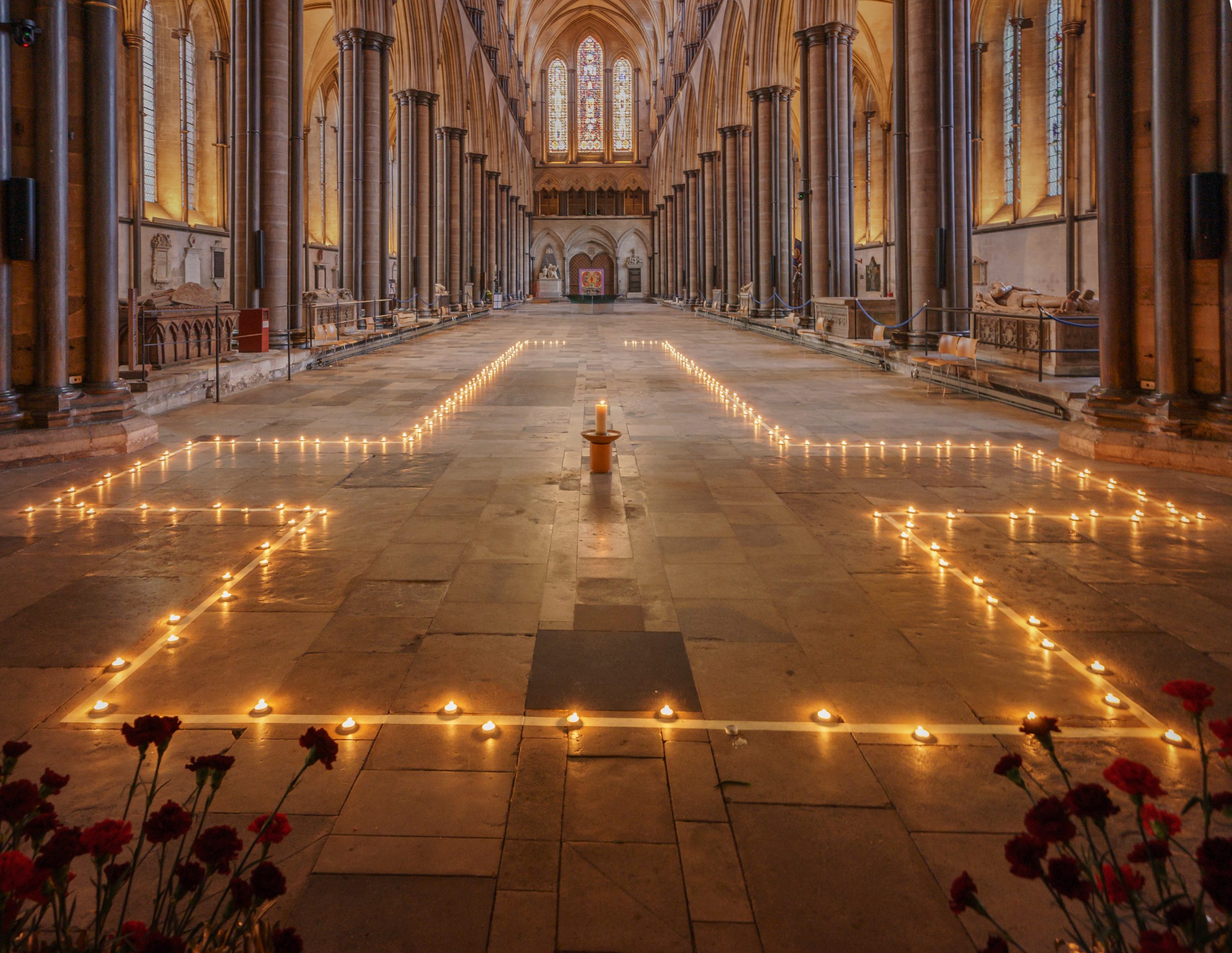30th November 2021
Should I stay or should I go?

A sermon preached by Canon Robert Titley, Treasurer
30 November 2021, 17:30, Feast of Andrew the Apostle,
Reading Matthew 4: 18–22
Just now I am thinking about hereafter. The hereafter – death, judgement, heaven, hell – is a traditional Advent theme, but I mean hereafter in the more limited sense of after here. From mid-January I shall be living in London, so I have been looking at what’s going down in the Big Smoke; and I saw that last weekend there was a strike on London Underground, a dispute over drivers’ night work rosters.
It strikes me that there is a certain similarity between that event and the calling of Andrew and the other disciples: each involves walking out; and in both cases – London tube drivers and Galilean fish catchers – there is disruption, for them and for those who depend upon them. In each case they need to weigh up the balance of good and harm, now and in the future, for themselves and for family, friends, community, the travelling – or fish eating – public.
And (for those who have faith) there is the faith question: is this what God wants? Let us picture Andrew’s father, left in his boat, watching his sons, his heirs, the future of his firm and family, walk along the beach and away from him. He must be asking, who is this Jesus? Can this really be what God wants for my boys; for us; for me?
Sometimes – perhaps most of the time – you can follow God’s purposes by keeping on doing what you do, but doing it more generously, more faithfully. Occasionally, though, God works through disruption, by rupturing the established schedules of life. But when? How do we know when we are in an ‘Andrew moment’? Is this the time, the issue, is this the person you must listen to and turn your life and others’ lives upside down?
For the disciples this is especially acute. After a disrupted weekend, tube drivers are back in their cabs and normal service has been resumed, whereas for Andrew and his comrades there is no going back after a few days. This is career change, as Jesus calls them to a different kind of fishing.
Is this what God wants? The debate usually revolves around self: is this me dressing up what I want as the will of God? Or (and this in its way is just as self-centred) is my overactive conscience persuading me that whatever I don’t want must therefore be what God does want?
I have no formula that guarantees right answers to the self/God question. I can, though, relate some reassuring news – which is that in the end the two seem to become one. Or they can.
Last week I had the privilege of a cup of tea with someone who is thinking a lot about the hereafter, because for this person death may well be close (as of course it may be for any of us). ‘What I want,’ this person said, ‘what I want most, is to know God, to be open to God.’
We play so many games in life, but there come times when the games stop and you have to acknowledge that knowing God, following God’s purposes, is the best way – in the end, the only way – of getting what you really want.
Last time I preached on St Andrew, I had been here about a week, and I quoted the closing words of Albert Schweitzer’s towering book, The Quest of the Historical Jesus. Schweitzer evokes the scene of the call of Andrew and the others in a vivid picture of modern discipleship.
I think Schweitzer is over-gloomy – being a follower of Jesus is largely a joy, and sometimes fun – but I agree with him, that, like those first disciples, we really have nothing better to do in this life than to seek the answer to the question I put on the lips of Andrew’s father: who is this Jesus?
He comes to us as One unknown, without a name, as of old, by the lake-side, He came to those who knew Him not. He speaks to us the same word: ‘Follow thou me!’ and sets us to the tasks which He has to fulfil in our time. He commands. And to those who obey Him, whether they be wise or simple, He will reveal Himself in the toils, the conflicts, the sufferings which they shall pass through in His fellowship, and, as an ineffable mystery, they shall learn in their own experience Who He is.




